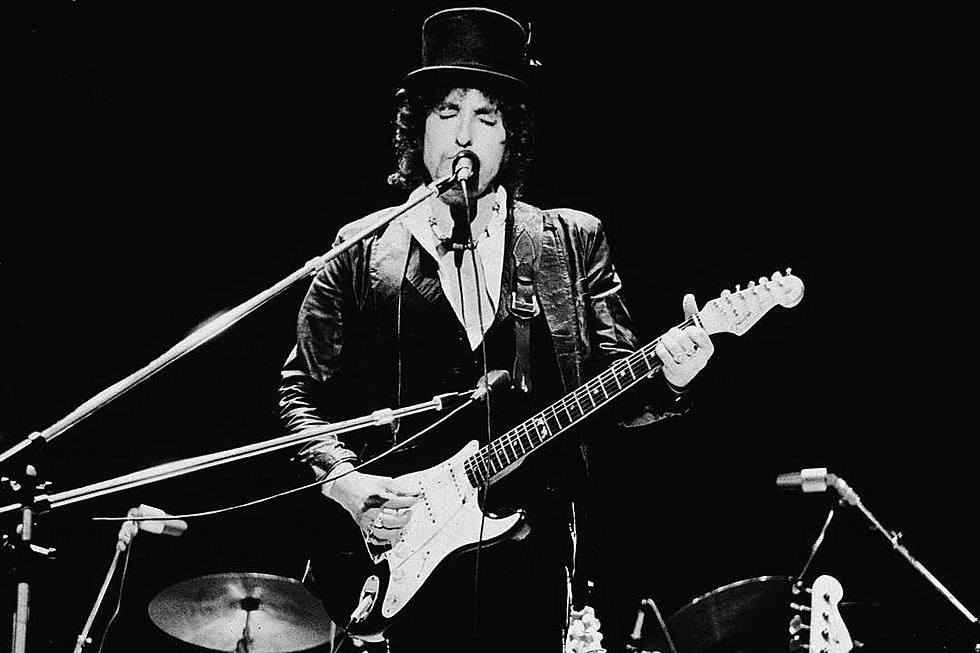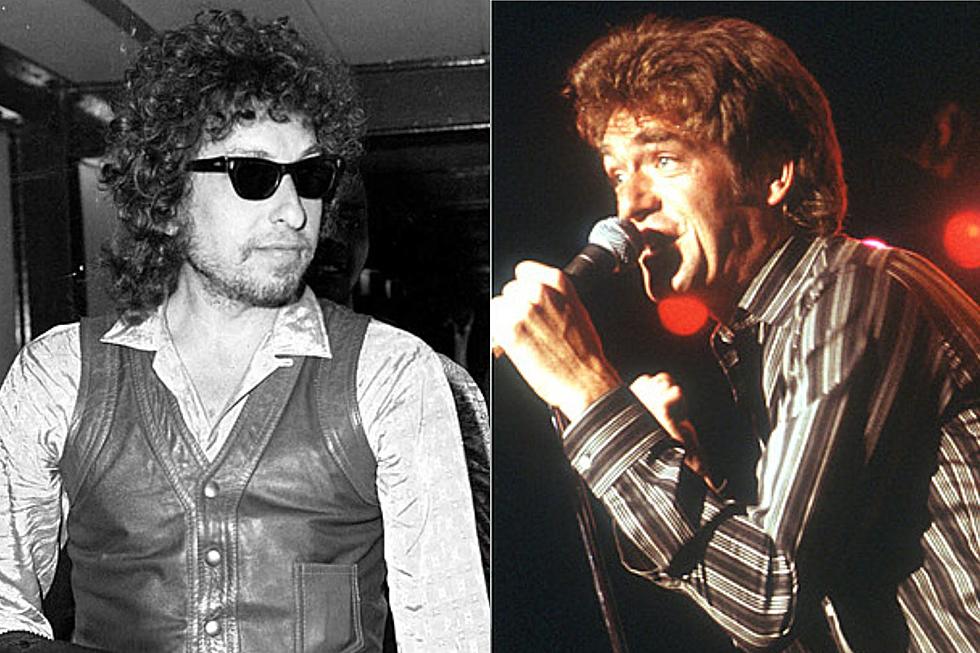
36 Years Ago: Bob Dylan Begins His Born-Again Phase With ‘Slow Train Coming’
Bob Dylan's 19th album was transitional in more ways than one. For starters, the thin mix and wishy-washy production on Dylan's previous album, 1978's Street-Legal, occasionally distracted from how good some of its songs really were. That had to change on the new album. And so did something else.
No stranger to defying his audience's expectations, Dylan – who was born Jewish – decided to explore Christianity at the end of the '70s. And he decided to make an entire album about his experiences.
Released on Aug. 18, 1979, Slow Train Coming was a transitional album for Dylan all right. After a few bumpy years at the top of the decade, he had finally managed to win back (mostly) the confidence of his fans, first with a celebrated reunion album and tour with the Band, then with 1975's relationship-in-turmoil masterpiece Blood on the Tracks and finally with 1976's Desire, which went to No. 1.
So, naturally, it was time to shake things up again.
Recognizing that Street-Legal's sound wasn't so great, Dylan persuaded Jerry Wexler – who was behind some of R&B's greatest songs in the '60s, including cuts by Aretha Franklin and Wilson Pickett – to produce. He also took the sessions to Alabama's famed Muscle Shoals Studio in April to start recording the album. Wexler's history with gospel-influenced soul artists, as well as the studio's past hosting many of those greats, were a perfect fit for Bob Dylan's first born-again album.
And Dylan wasted no time hiring a band – made up of studio vets Tim Drummond (on bass) and Barry Beckett (keyboardist and co-producer of Slow Train Coming), as well as Dire Straits' Pick Withers and Mark Knopfler, fresh from the success of their debut LP – that he felt would help get across his new message and music.
Thing is, nobody knew what Bob Dylan was up to. He hadn't bothered to tell Jerry Wexler or the musicians that -- as Knopfler told his manager -- "all these songs are about God." But after a somewhat rocky start to the sessions (which began with the recording of a song that didn't even make it on the album), things started to smooth out.
A dozen songs were recorded for Slow Train Coming, with nine of them eventually making the final cut. The best of them ("Gotta Serve Somebody," "Precious Angel," "Slow Train" and "Man Gave Names to All the Animals") don't hide their faith-driven narratives. A few others ("When You Gonna Wake Up" and "When He Returns," especially) even swerved into semi-rapture territory.
But fans didn't seem to mind the God talk all that much – at least this time. Slow Train Coming made it to No. 3 and went platinum. (It was Dylan's last Top 10 album until his heralded comeback on 1997's Time Out of Mind.) "Gotta Serve Somebody" made it to No. 24, Dylan's best showing since "Knockin' on Heaven's Door" just missed the Top 10 six years earlier. Dylan also won a Grammy for Best Male Vocal for the track, which remains his last Top 40 hit to this day.
When Bob Dylan returned in 1980 with Saved, and then again in 1981 with Shot of Love, with the same sort of faith-based records – but without the solid songs or tight production to back them up – he was, for the most part, scorned and ignored. They led to a disappointing decade (with a couple of exceptions) that Dylan wouldn't work himself out of until he was deep into the '90s.
Bob Dylan Albums, Ranked Worst to Best
Rock's Most Hated Albums
More From Ultimate Classic Rock









